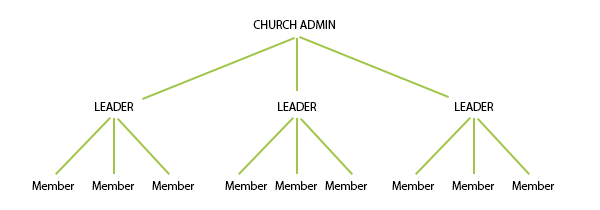Leader Resources
EXERCISES
- Review memory verse of the week and discuss how it relates to the TRUTH section.
SUGGESTED DISCUSSION
- TRUTH – Discuss any of the IN BIBLE questions you choose, but don’t take time to discuss them all. Ask your JG to share their personal applications of the verses you do discuss. Their personal applications should start with the word “I” – e.g. “I will (with God’s help) …” If they haven’t written down personal applications, or if their applications aren’t specific and measurable, coach them on doing this. Application is the hardest thing the student of the Bible has to learn. Here are some tips for discussion:
- GENESIS 1:26-27 – God uses the 1st person plural pronouns “us” and “our”, when speaking of Himself in verse 26. Yet, the writer of Genesis (Moses), uses the 3rd person singular pronouns “His” and “He” when referring to God. This hints at the plurality of God, but also maintains that He is a single Being. NOTE: It is sometimes claimed that the use of the plural when God speaks of Himself is a oratorical device called the royal or majestic plural, and not a hint of actual plurality in God’s being. This is unlikely however, since the royal plural is a relatively new invention in the history of monarchs. Ancient biblical kings such as Pharaoh, David and Nebuchadnezzar all spoke of themselves as “I”, not “we”.
- ISAIAH 44:6, 45:5-7 – It is significant that God proclaims Himself to be the one God and Lord over all people from every nation, not just the God of the Jews. Israel’s ancient neighbors all believed that each nation, or even city, had its own patron god (or gods) to whom worship and obedience was due. The God of the Bible claims to be the One God whom all nations must worship and obey. This is no less significant in our time, when many in our modern culture either dismiss God from their lives, or only look to Him for blessing without worship and obedience.
- MALACHI 2:10 – Malachi calls God the “one Father” because He created all people. He is Father by creation even to those who reject Him, though He is Father by redemption only to those who trust in His Son.
- MATTHEW 3:13-17 – The Father’s voice was audibly heard. The Son was incarnate, and therefore, both visible and audible. The Spirit was visible in a form like a descending dove.
- ACTS 17:22-29 – Paul describes God as:
(v 23) the God whom the Athenians did not know
(v 24) the Creator of the world and all in it, the Lord and Ruler of heaven and earth, not needing a physical home provided by humanity
(v 25) not needing any human service, but being the source of life and provision
(v26) making all nations from one man, determining their rise, boundaries and fall
(v 29) creating humanity to be like Him, as children are to parents - Paul describes humanity’s relationship to God as:
(v 25) human life arose from God’s creative power
(v 26) human life and history are set by His determination
(v 27) human life can and should seek His favor, blessing, and care
(v 28) humanity’s existence is dependant upon Him
(v 29) humanity is the offspring of God - MATTHEW 28:19 – Baptism is given in the Trinitarian name (singular) of the Father, Son and Holy Spirit.
- LUKE 1:35 – The Holy Spirit would come upon Mary. The Most High (Father) would overshadow (protect) her. The Son would be incarnate in her.
- GALATIANS 4:6 – God (Father) sends the Spirit of His Son into believers’ hearts. The prayer of the Spirit in us is directed to the Father.
- EPHESIANS 2:18 – Through Christ (the Son) we have access to the Father, by the Spirit.
- EPHESIANS 4:4-6 – There is one Spirit, one Lord (Jesus), and one God and Father
- 2 CORINTHIANS 13:14 – Paul closes with the benediction: The grace of Jesus, the love of God (the Father), and the fellowship (communion) of the Spirit be with you all.
- TITUS 3:5 – God saved us by His (the Father’s) own mercy, the regeneration (accomplished by the Son), and the renewal of the Holy Spirit.
- TRUTH – Review the TO SUMMARIZE section. Make sure your JG understands that the first Person of the Trinity is the Father for whom all His creatures exist. Also make the point that the Father is the ultimate provider and caregiver of believers. He loves His people, and brings them together in the blessed community of His heavenly family.
- EQUIPPING – Make sure you plan on spending a significant amount of time discussing the equipping questions. Your goal is to bring the biblical perspective of God’s Fatherly care to any in your JG that may struggle to rightly trust and rest in God as their Father.
- ACCOUNTABILITY – Allow time for smaller groups of 2 or 3 to ask accountability questions and pray for one another.
- MISSION – During this section of The Journey you will organize your JG to participate in a service project in order to demonstrate the gospel. The discipleship and outreach ministries of your church leadership will inform and equip you for leading your group in this project. Try to involve everyone in your JG in a discussion of the mission service project. Make sure everyone has an opportunity to share in the preparation and/or execution of the project. For more info, contact the discipleship ministry at Perimeter Church

